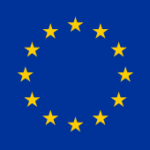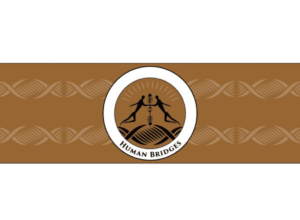EU Citizens Are Fully Aware Of EU’s Democratic Deficit: An Interview With C. J. Polychroniou
 06-09-2024. Europeans go to polls this week for parliament vote. What is at stake? Is the future of the European Union (EU) at risk on account of the surge of the far-right? But is the EU even a democratic institution worth saving? And why is the Left in crisis across Europe? Political economist/political scientist C. J. Polychroniou tackles these questions in an interview with the French-Greek independent journalist Alexandra Boutri.
06-09-2024. Europeans go to polls this week for parliament vote. What is at stake? Is the future of the European Union (EU) at risk on account of the surge of the far-right? But is the EU even a democratic institution worth saving? And why is the Left in crisis across Europe? Political economist/political scientist C. J. Polychroniou tackles these questions in an interview with the French-Greek independent journalist Alexandra Boutri.
Alexandra Boutri: Elections for the European Parliament (EP) are taking place this week from Thursday 6 June to Sunday 10 June. Some 373 million citizens across the 27 members of the European Union (EU) are eligible to vote, but it remains to be seen whether the “surge” in participation in 2019 will continue in 2024. Let’s talk about participation in the world’s only transnational elections because the general impression is that Europeans do not take very seriously the EP elections.
C.J. Polychroniou: Participation in EU elections has always been low. We saw a “surge” in participation in the 2019 EP elections in which just slightly over 50% of EU citizens cast a vote. And this was the highest turnout in 20 years. So, yes, it’s obvious that Europeans are not as excited about EU elections as they are about national elections. Votes to the European Parliament also tend to be uncorrelated to national elections in the various member states. They are really low-turnout protest votes. And the reason that Europeans do not take seriously the EP elections is because they are fully aware of the EU’s democratic deficit.
The EP is the only directly elected EU body; yet its authority is extremely limited. Unlike national parliaments, it cannot initiate legislation. What it does is simply debate legislation and can pass or reject laws. It can also make some amendments. It is the European Commission that is solely responsible for planning, preparing and proposing new European laws. Those laws are then debated and adopted by the European Parliament and the Council of the European Union which consists of one government minister from each member state (and is not to be confused with the European Council which consists of the heads of government of every EU country). Essentially, we are talking about a rubber-stamping exercise on the part of the EP with regard to legislation. The European Commission is the EU’s executive body, surrounded by some 32,000 permanent bureaucrats, but the European Council is the highest political entity of the Union. The Commission president is proposed by the European Council and then approved by the Parliament. Read more
The Far Right’s Political Power Is Expected To Grow In EU Elections

C.J. Polychroniou
06-06-2024 ~ Far right and hardline conservative parties may emerge as the third-biggest political force in the European Parliament.
Every five years, citizens of European Union (EU) governments elect their representatives as members of the European Parliament. With 720 seats up for grabs, this year’s election, which will take place from June 6-9, is especially crucial for the future of the continent for several reasons.
First, the deadliest war on European soil in more than 70 years has been going on since February 24, 2022, yet Europe remains politically subservient to the United States and is thus completely incapable of forging a strategy of its own to deal with the Ukraine crisis.
Second, Europe is facing an economic stagnation so severe that its economic laggards, namely Greece, Portugal and Spain — peripheral countries with severe vulnerabilities as they rely excessively on imports and tourism while carrying high public debt and facing high unemployment levels — have become the EU’s top economic performers.
Third, democracy in European states has been in decline for several years now. For example, declines in the rule of law and freedom of the press are well documented, while the recent bans of pro-Palestine protests speak volumes of Europe’s democracy deficiencies. Meanwhile, far right parties are making big inroads across Europe.
Fourth, the EU has failed as a political and economic union in promoting integration, in defending humanistic values and in securing prosperity for future generations. It has also failed, subsequently, to create a framework for collective governance. These failures are built into the architecture of this Frankenstein-like entity as the EU was not intended to be democratic and its institutions and their decision-making procedures lack democratic legitimacy. Read more
The Humble Carrot’s Colorful History

Adam Alexander – Photo: Chelsea Green Publishing
06-05-2024 ~ The carrot has followed armies, colonial explorers, and politicians to become one of the world’s most prized vegetables.
We have the Arabs to thank for introducing carrots (Daucos carota) to Western Europe. Two distinct subspecies led to the domesticated carrot. The subspecies D. carota sativus, native to Turkey, was grown by the Arabs and consumed by their invading armies, both animal and human.
At the end of the 10th century, carrots were mentioned in a cookery book compiled by Ibn Sayyār al-Warrā, an author from Baghdad. Called Kitab al-T. abīh ̆ (Book of Dishes), it is the earliest known Arabic cookbook. It may have been added to the libraries of Europe’s Moorish invaders who started their own vegetable gardens in the Iberian Peninsula early in the eighth century.
The first historical record of carrots as a crop in Spain and southern Europe, however, is found in the work of the great Arab agriculturalist Ibn al-‘Awwām, towards the end of the 12th century. This suggests that by this time, a number of different but unnamed varieties of carrots were being grown.
Some 200 years later, carrots were cultivated in northern Europe and were valued for their high sugar content. Recipes at the time turned carrots into jams, sweet condiments, and puddings. Read more
What Happened To Our Ape Ancestors?
 06 – 03 -2024 ~ Millions of years ago, in the Miocene Epoch (23 to 5.3 million years ago), about 100 species of apes roamed Europe, Asia, and Africa. Just a few million years later, this number had drastically declined, presenting fascinating questions for today’s paleoanthropologists.
06 – 03 -2024 ~ Millions of years ago, in the Miocene Epoch (23 to 5.3 million years ago), about 100 species of apes roamed Europe, Asia, and Africa. Just a few million years later, this number had drastically declined, presenting fascinating questions for today’s paleoanthropologists.
What happened to the extinct species, which have been identified in Eurasian fossil remains over recent decades? How did some apes of these species persist and evolve? And, the most hotly debated question: Did the apes who were our human ancestors originate in Africa or Eurasia?
The traditional view, following Darwin, hypothesizes an African origin for both humans and modern apes. More recent fossil evidence supports a Eurasian origin for the ancestors of humans and modern apes, which migrated back into Africa, about 7 to 9 million years ago, before modern humans evolved from them. But even proponents of this Eurasian origin view acknowledge that not enough is known yet to be certain.
The Miocene Environment
The Miocene Epoch is known for its abundance of fossils from different geographical regions, including a wide variety of mammals. Over the epoch’s nearly 18-million-year span, the Earth’s climate and geography changed dramatically. The beginning of the epoch was warmer than the prior Oligocene, the mid-Miocene period is known as the Miocene Climatic Optimum, and the late Miocene was marked by cooling. Read more
PVV Blog 9 ~ An Ideology Of Exclusion In Power
 06-03-2024 ~ On May 16th, the Dutch Party for Freedom PVV, the liberal party VVD, the New Social Contract party NSC, and the Farmer Citizen Movement BBB, presented the coalition agreement for the upcoming cabinet. In my previous blog, I already addressed the content of the agreement. Naturally, I followed the nature of the reactions with interest. How would the Dutch public respond, and how would the opposition in parliament react?
06-03-2024 ~ On May 16th, the Dutch Party for Freedom PVV, the liberal party VVD, the New Social Contract party NSC, and the Farmer Citizen Movement BBB, presented the coalition agreement for the upcoming cabinet. In my previous blog, I already addressed the content of the agreement. Naturally, I followed the nature of the reactions with interest. How would the Dutch public respond, and how would the opposition in parliament react?
Debate in the House of Representatives
On Thursday, May 22nd, a debate took place in the House of Representatives about the coalition agreement. I watched it, and I found it confronting. Normally, Party for Freedom leader Geert Wilders is the leader of the opposition, but now he spoke from the podium as the leader of the new coalition. He is or will soon become the most powerful person in the Netherlands once the new cabinet is installed. And he was already taking a step ahead: sovereign, sharp, and very experienced in debating, he parried all attacks from the opposition, and his three future coalition partners also closed ranks.
Polls
Polls among the Dutch public showed that the new center-radical-right government is reasonably well-received. This cabinet is rated higher than previous ones, particularly the last one, led by VVD leader Mark Rutte, who will soon step down after 14 years as prime minister and may become the new secretary-general of NATO. It is not surprising that the reception of this new cabinet is positive; after all, the PVV gained a quarter of the votes in the November 2023 elections, which naturally translates into a positive response. Read more
- Page 3 of 3
- previous page
- 1
- 2
- 3


